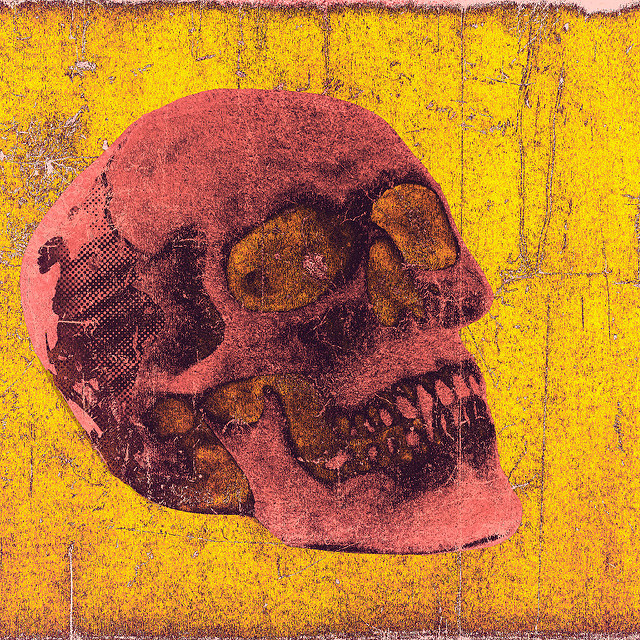“What were you hoping to find?” I asked.
“God,” he answered, “And proof as to why we are here and what my purpose is.”
My friend had just gotten back from his trip to Peru, where he had undergone an intensive Ayahuasca retreat and ceremony. Though he was no stranger to psychedelics, he had looked forward to the trip for a more spiritual purpose: He wanted to find meaning.
“Did you find it?” I asked, eating our order of vegetarian pizza and salad, since the former carnivore had become a full-fledged vegetarian since he had arrived home.
“Yes.” he replied.
“How?”
“By dying,” He said. “My first session was terrible. It was uncomfortable and really just horrible. I felt like I was dying and I was scared. So, I resisted. My second night, however, was magical. I was no longer afraid. I embraced the sensations and I let myself die.”
He told me about how he was able to see himself outside his body and how he learned that his suffering in this life was from the fears and traumatic death he experienced during his previous lives. He talked about how he was always worried about what’s next and that the knowledge and sensation of death somehow made him become more at peace with the fleeting quality of life on earth.
I nodded in agreement. Our conversation made me think of another one I had, just a week prior—this time with a friend who suffered from cancer during his adolescent years. He was resilient in his fight against the disease, a fight which he has since won. He’s still alive and kicking, albeit with only one leg after having his right one amputated.
I had asked him why he was so happy. He continues to be one of the most uplifting individuals I know and would always be the first to crack a (dirty) joke. The irony of him being the one to comfort me was never lost on me. I finally asked how he was not bogged down by issues and insecurities like the rest of us seemingly are.
“Did I ever tell you I had a roommate?” he narrated. “He was a father of three and we shared a room. I was about 16 at the time and just started chemotherapy. He died the morning after our first night together, from an aneurysm. The last thing I remember was his sons watching helplessly as he was being defibrillated in front of me. They soon wheeled me out and placed me in a private room. It was a bit traumatic, but I wasn’t really scared of dying anymore after that.“
Though both of them had completely different experiences, this idea of becoming at peace with death seems to have set them free from the prison of our reality. Their close encounter with death provided them with the gateway for authentic living and awakening. In a way, they did die—at least in the sense of their ego. Because of it, they no longer feel the compulsion to hang onto the idea they have of themselves; they were able to leave behind the idea of themselves as an isolated individual.
The idea of life and living as we know it today is associated with so much external accomplishment and validation, defined by fear of the unknown. Death is the ultimate unknown, and instead of coming to terms with it we have merely swept it under the rug of our consciousness in favor of fleeting amusements and hedonistic desires.
Life—with our gadgets, imagined responsibilities and endless striving for perfection—presents the ultimate distraction from living. We have this idea of death as something to be avoided at all costs. And it seems that everything in the world just reinforces this idea, asking us to pack all pleasures and accomplishments right here and right now. It’s as though time is always running out.
However, it would seem that this fear of death is what hampers our authentic living. From what I have learned from these two encounters, the other side of this fear of death is freedom. Not freedom from bad days and daily irritations. That’s never something people can get away from within our fragile existence in this world; but rather, freedom from expectations, anxieties and the clamor for ideals.
While most of us may not have the opportunity to have a similar experience, recognizing the importance of not hanging on to our worldly existence can be achieved in the form of mindful meditation. According to Alan Watts, the point of all religion is to die in the midst of life. Monks would often place skulls on their desks and Buddhists would meditate in graveyards; as a nod to our eventual end. Little actions can serve as a reminder of the futility of that which we direct so much of our attention on.
For these two, they have found a veritable form of peace because in their experiences, they have seen themselves as more than flesh and blood; more than race and religion and more than the labels society have imposed upon them. They have seen themselves as this pulsating form of energy, eternal and timeless. Something we all have to be reminded of from time to time.
~
Relephant:
A Life to Die For: Why Do so Many of us Fear Death?
Mindfulness Meditation to Transform our World.
Author: Hannah Jo Uy
Image: AK Rockefeller/Flickr
Apprentice editor: Thayne Ulschmid; Editor: Emily Bartran











Read 1 comment and reply